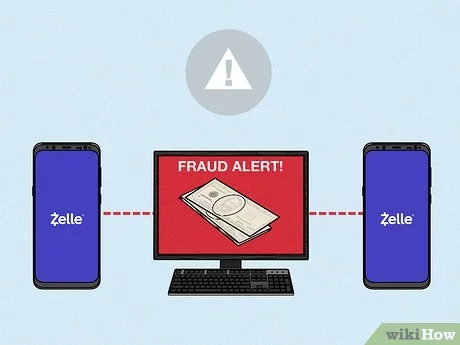
How zelle attracts criminal activity
Scottsdale, AZ – In 1933, when FBI agents asked why he robbed banks, Slick Willie Sutton replied, “Because that’s where the money is.”
One of the common characteristics of criminal behavior is that it capitalizes on tools of modernity to expose where the money resides. Slick Willie used physical disguises and threats to exploit the weaknesses of the industrial age–and in the digital era, cyberspace, mobile communication, and digital relationships have plausibly become modern disguises and threats for modern forms of exploitation.
And, in this current setting, where the structures of financial security continue to grow in complexity, ethical dilemmas that question the responsibility of banks to protect users from fraud are coming to a head.
Recently, Zelle, the peer-to-peer money transfer app, has come under the questioning spotlight because of a flurry of accusations around the ease with which the app is wielded by criminals to swindle the innocent. The widespread infection of this problem has even led the Pennsylvania State Police to recently issue a public warning about the spread of the “Zelle Scam.”
In this process, the scam artist sends a text with the appearance of an automated notification from the user’s bank. First, the text states that a potentially fraudulent transaction has been flagged. Then, the text asks the user to confirm if the transaction was legitimate. When the user responds NO, they get a call from someone claiming to be an agent from their bank’s fraud department. From here, they coax the account holder into verifying their information and eventually guide them to reset their password. Once the fraudster clutches the information, the money is transferred and gone in minutes.
The Zelle Platform: Gaps In the Armor
Zelle was launched in 2017 by the world’s largest banks as a response to the wildfire growth of PayPal’s peer-to-peer payment app, Venmo. Bank of America, JPMorgan Chase, and Wells Fargo–among other of America’s largest banks–partnered up to launch Zelle. To build a user base, they used their existing reservoir of trust among current account holders to encourage participation in the new service. Where Venmo appealed to tech-savvy demographics, Zelle successfully reached older audiences. More recently, Zelle amped up its marketing budget to target adults ages 35-54.
Another distinguishing feature of Zelle over such apps as Venmo is that money transfers are immediate and completed within minutes. There is hardly a verification process, and the buffer zone for payments to authenticate and complete is tissue-thin.
And while Zelle found success in this value proposition and marketing formula (expecting 63 million users by 2025), it’s acted as a perverse beacon, drawing in those with ill intent.
How Zelle Attracts Scam Artists
Back when such services first launched, analysts were quick to underscore the security risks indelibly tied to the concept of peer-to-peer payment apps. However, in the beginning, many considered Zelle to be one of the most secure payment service apps because of its big-bank backing. But, with most users being 25-54 years old and recent breakthroughs in the 55-74 demo and the immediate transaction service, Zelle has become a hotbed for fraud. As a result, they now face a barrage of complaints about failing to repay those who have fallen victim to digital pickpockets.
To this point, Zelle has largely slipped the collar of responsibility to refund fraud victims by drawing distinctions between the terms fraud and scam. The difference lies in the role of user agency, depending on whether the account owner authorized the transaction themself or not.
Zelle explains on their website, “Even if you were tricked or persuaded into authorizing payment for a good or service someone said they were going to provide, but they didn’t fulfill it, this would be considered a scam…Because you authorized the payment, you may not be able to get your money back.” In many cases, the money never comes back.
As Zelle increases its marketing among audiences who are less likely to identify online scams, the number of victims increases with it. As this number expands, questions aimed at companies like Zelle and large banks suggest they should beef up customer protection and act consistently with returning stolen money.
When asked about the Zelle scam, a spokesperson for Chase Bank told Current Affairs Times, “Unfortunately, scammers target consumers from many banks. We urge all consumers to never send money to someone who tells them that doing so will prevent fraud on their account. Bank employees won’t call, text, or email consumers asking for this, but scammers will.”
Such statements are considered threadbare by victims and financial security experts. Instead, they claim that massive institutions like Chase Bank should use their power and resources to ensure victims receive proper reconciliation, especially when scam artists are posing as agents of their bank.

What’s Being Done
The prevailing attitude among companies like Zelle is that education is the key to solving this crisis. The knee-jerk reaction is to offer resources that guide consumers to identify and avoid scams. For example, when Current Affairs Times reached out to Early Warning Services (the fintech company responsible for the security operation of Zelle’s platform) with questions about what action there is to solve the rampant fraud issue, they responded with a link to Zelle’s education page.
As it appears, the most helpful tactic by the defrauded has been to go public with their experience. The New York Times outlined a few stories of those who fell victim to the Zelle scam, and in almost every case, their banks underwent a change of heart and refunded the money.
Overall, banks appear to lack urgency in bringing this issue to a halt. And the insouciance understandably outrages those who’ve had their savings emptied. But banks have never rushed to protect their clientele of low-to-average investing power. Because, after all, that’s not where the money is.
Research Credits: Afia Sengupta
Thumbnail Credits: WSB
Sources:
- PayPal vs. Venmo: Whose the Best?
- Zelle owner doubles down on marketing, targets the older group
- Fraud is flourishing on Zelle. The banks say it’s not their problem.
- FBI: The case of Willie Sutton
- Lonely Americans were swindled out of millions in romance scams
- Pennsylvania State Police Community Awareness Bulletin
- How the Biggest Mobile P2P Players Stack Up
- Zelle scam: Wells Fargo customers lose thousands after scammers pose as bank employees






